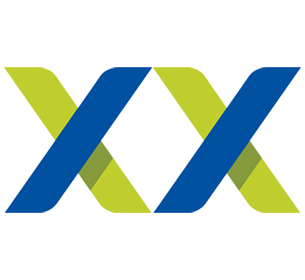One trade. Done
20 years ETF trading on Xetra

They are considered simple, transparent and flexible: Exchange Traded Funds – ETFs for short – celebrate their 20th birthday on April 11. Deutsche Börse brought ETF trading to Europe in 2000 with just two products. Since then, Xetra has been the leading trading venue in a rapidly growing market. In our series, we look at the development of ETFs from different perspectives – and highlight trends, innovations and structural changes in the markets.
Benefits and disadvantages of hedging exchange rate risks
Around 10 percent of all ETFs are now offered in a variant with currency hedging. The aim is to fade out exchange rate fluctuations. How useful this is depends on the asset class, the region and the time horizon, among other things. More
ETFs: smart investing
Liquidity in ETF trading is of central importance. The more frequently an ETF is traded, the lower the transaction costs for investors. In addition to criteria such as management fees or tracking quality, liquidity is a key criterion when selecting an ETF. But how can liquidity be measured? More
How the market prices of ETFs are made

What does the exchange price of an ETF tell me? Why does the ETF not develop like the index? Which price is important for the ETF order? These are questions that many investors (and us) often ask themselves. An explanation. More
ETCs, ETNs and Co.: Definition of asset classes

In addition to the highly sought-after ETFs, which have been available in Germany since 2000, other asset classes with three letters have been added in recent years, which have very similar characteristics but also some subtle differences. A classification. More
ESG-ETFs – More than a trend

Just a while ago, sustainable investments resembled organic food: Supply was limited, prices were high. Today, sustainable investments have long since become more than a romantic utopia. It is therefore worth taking a closer look at ESG index funds. More
Tips for ETF selection

They are known as easy, transparent and flexible: Exchange Traded Funds celebrate their 20th birthday on 11 April. Deutsche Börse brought ETF trading to Europe in 2000 with no more than two products. Since then, the Xetra platform has led the way in a rapidly growing market. In our series, we look at the development of ETFs from different perspectives - and highlight trends, innovations and structural changes in the markets. More
Twenty years of ETFs from an index point of view

20 years of ETF trading in Europe, that is two decades marked by major changes in the way people invest - and the sharp rise in the demands on indices. More
"We wanted to offer investors in Europe access to this product type"

Stephan Kraus talks with us about the most important milestones in the ETF market over the last 20 years, his forecast for the next ten years and the future role of Deutsche Börse in this success story. More
ETF derivatives are growing in importance

In 2000, 20 years ago, trading in exchange traded funds began in Germany. But it was only with the development of options and futures on ETFs that investors were able to take advantage of the whole range of investment opportunities. Since then, the European ETF market has grown substantially. Eurex quickly recognized the potential and is now the largest provider of ETF derivatives in Europe. More
From 0 to 100 – a summary of the short but exciting history of ETFs

The idea of investing broadly diversified and cost-effectively with passive investments already took root at the beginning of the previous century. It has been a long way to the current acceptance of the asset class. More
ETFs – Versatile and increasingly popular

20 years after their introduction in Europe, ETFs are increasingly used by private investors. The number of savings plans in particular is growing rapidly. An article by Hauke Stars, Member of the Executive Board at Deutsche Börse. More
20 years of ETFs – a wrap-up
The idea was as simple as it was revolutionary – and it is still convincing today. In January 1993, the first ETF was launched in New York. Today there are almost 7,000 ETFs worldwide with assets of more than 6 trillion dollars. It took a few years for ETFs to find their way from New York to Europe, but since then things have been moving up almost unchecked in this country as well. ETF investors today benefit from very high liquidity, increasingly innovative funds and falling prices. More
Facts and figures: History, products, sales
- Xetra was the first trading place for ETFs in Europe and has since been the market leader in terms of the number of listed ETFs and trading volume.
- In Europe, Xetra trading had a market share of 28 percent of exchange-traded ETF volume in 2019. In Germany, 89 percent of exchange-traded ETF turnover is accounted for by the Xetra trading platform.
- Private investors account for 8 percent of ETF trading volume and 35 percent of the number of transactions.
- The average monthly order book volume in February 2020 is almost 20 billion euros. The trading volume correlates strongly with the volatility on the stock market. The higher the volatility, the greater the trading volume.
- Each ETF is managed by at least one Designated Sponsor, who continuously quotes buy and sell prices.
- The average order size for ETFs on Xetra was EUR 35,000 in 2019 and EUR 45,000 in 2018.
- Around 1,500 ETFs are traded from 9 a.m. to 5:30 p.m. on Xetra and from 8 a.m. to 8 p.m. on the Frankfurt floor.
New ETFs and new services

The ETF offering is growing steadily. Stay tuned
Newsletter

You want to be informed by e-mail about new ETFs and services just subscribe to our monthly newsletter offering a lot of trends, know-how and reading tips for your investments.







